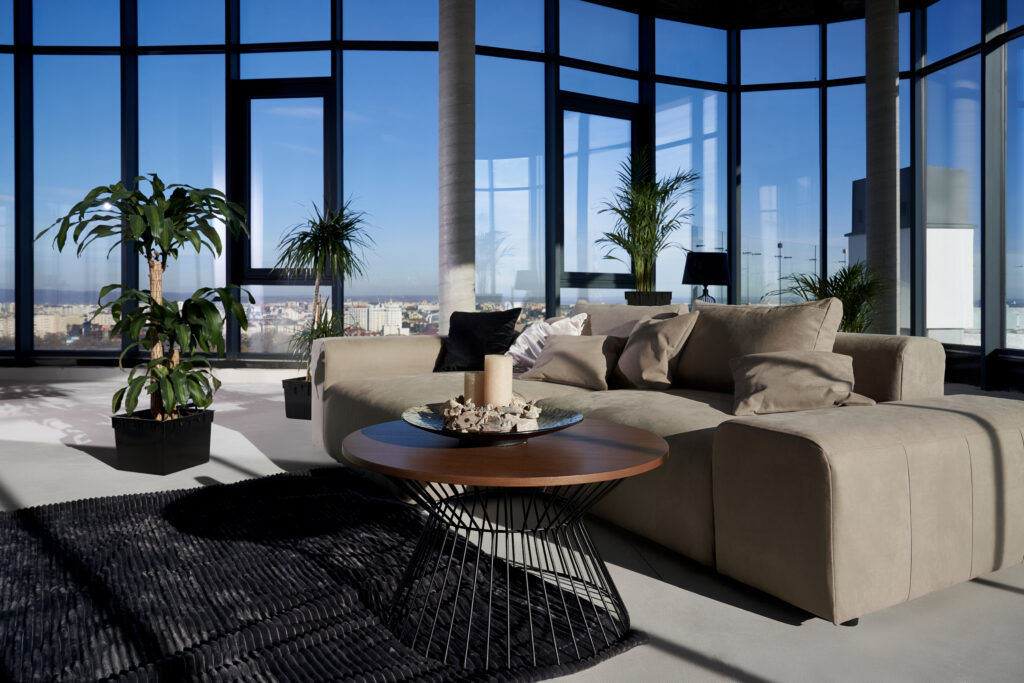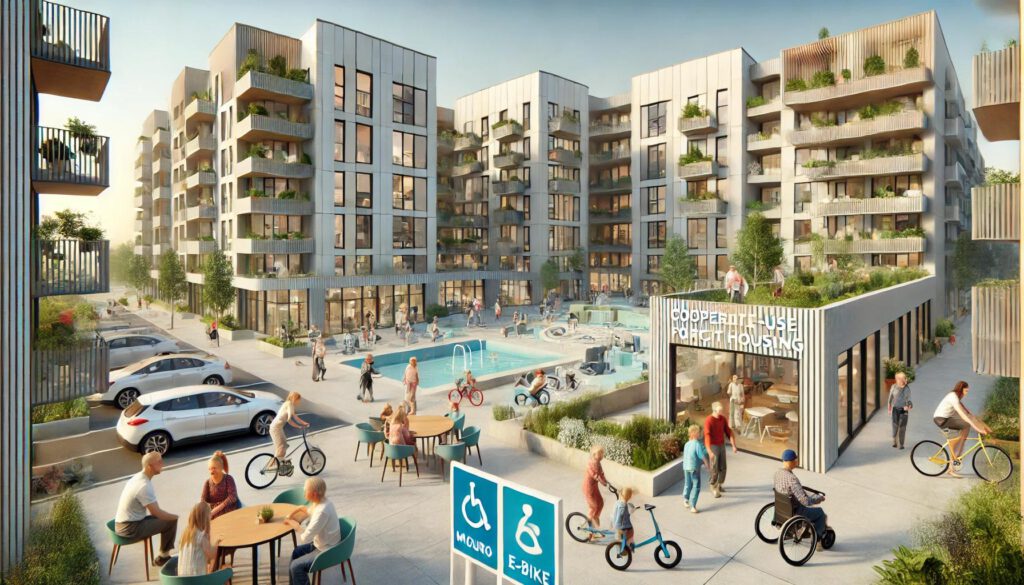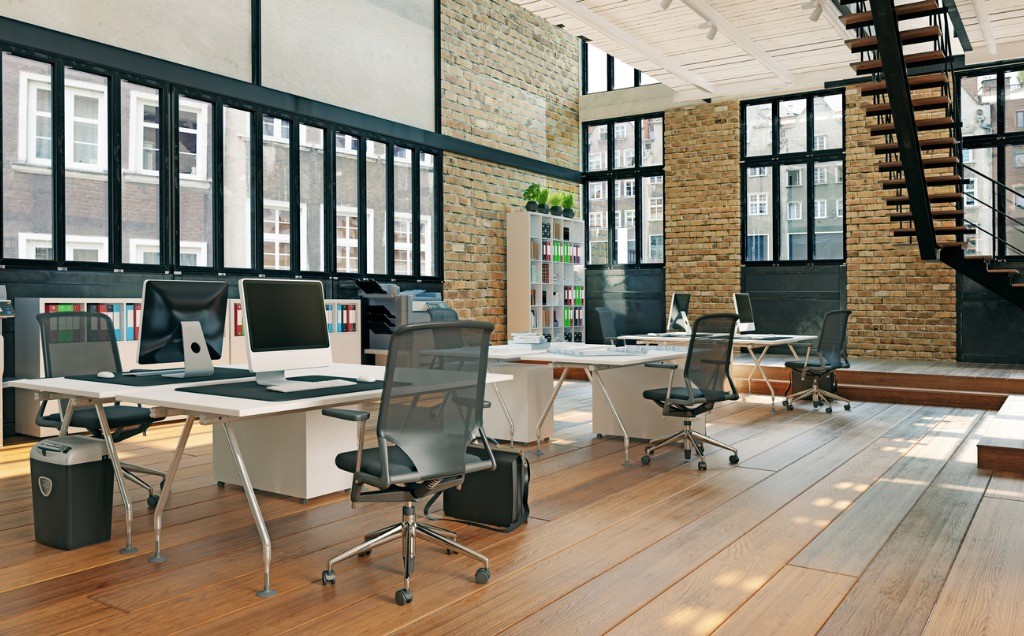How can office space be marketed today? Up until the 2010s, most buyers and tenants had similar requirements. Then came the start-ups, New Work, home office, ESG and, most recently, the property crisis. Wishes and requirements multiplied. At the same time, vacancies grew — to over 5.8 million square metres today in the seven top cities alone1 . In our newsroom series Expert tip: property marketing, we now present a few solutions … perhaps one that you have not yet thought of.
3 trends that give hope
Even in the current difficult times, there is a certain demand for office space, at least in some segments:
- Smaller companies
According to a CBRE study2 , smaller, economically sound companies are currently the most active tenant target group. Their size and flat hierarchies make it easier for them to find the solutions they need. Furthermore, the financial outlay for space of 500 square metres or more is still manageable, making it easier to make a decision even in uncertain times.
- Hybrid working
For many companies, remote working is now only a temporary component: the trend is clearly moving towards hybrid working, as a recent JLL study3 shows — and thus towards a return to the office, at least temporarily. 35% of employees are now back in the office on 5 days a week, 45% on 3–4 days and 18% on 1–2 days.
- Locations with quality of life
Another trend reflects a general development: medium-sized cities with between 200 and 500 thousand inhabitants are not only growing in popularity in general4 . The opportunities for office lettings are also better here, as the example of Nuremberg shows5 .
Holistic ESG approach as an opportunity
Today, good energy efficiency is a basic requirement for buyers and tenants. Some buildings even go beyond this and have their own capacities for generating electricity and heat. However, such energy features will become standard in the foreseeable future. More effective marketing arguments are therefore more extensive features that address all three ESG factors (environmental, social, good governance) equally — such as
- Car park with charging station for electric cars
- Sufficiently large, easily accessible bicycle garages
- Greening of flat roofs, use as sports and leisure areas (also in existing buildings with sufficient load-bearing capacity)
- Rooms for a daycare centre, possibly also as a community facility for neighbouring businesses
- a digital building control system that also includes security systems
Group feeling for small companies
Better sustainability — through the shared use of resources — also characterises the next marketing approach: the creation of rental offices and co-working spaces. Today, franchise companies offer owners, project developers and investors comprehensive support with development and marketing. Incidentally, a current trend in workspace properties is towards smaller units in locations outside the metropolises: Their advantage is that they are close to people’s homes and have short commuting times for employees.
For the tenants — mostly self-employed people, small businesses or branch offices — the model has great advantages. The shared use of reception, conference facilities, cafeteria and building management not only reduces costs, but also significantly reduces the administrative tasks associated with running the business.
Utilising strengths with alternative forms of living
Converting office space that is difficult to let into residential space is not a new idea in itself. However, there are some interesting trends in which office properties have an advantage due to their typical open-plan architecture. This makes it possible to create targeted offers for new forms of living and living models for which the traditional housing market offers hardly any solutions:
- Micro-living for Generation Z
What once began in Tokyo with capsule flats is now attracting widespread interest among Generation Z, who are looking for mobility and sustainability. Remote working in changing, attractive metropolises or commuting between distant locations are an expression of new life models that focus on personal development and flexibility. The target groups are students and young professionals who value minimalism as a way of life and like to furnish their homes in just a few square metres.
- Serviced flats
Small flats with domestic services are aimed at more affluent tenants. In addition to high-earning young professionals, this model also appeals to another important target group: According to Immobilienmanager, the German Property Federation (ZIA) assumes that around 10% of senior citizens over the age of 70 prefer this form of housing. There is already a shortage of 550,000 residential units. At the same time, many older office buildings offer an advantageous location for this target group: quiet, on the outskirts of the city and with good shopping facilities in the surrounding commercial area.
- Living in a community
Shared flats are an attractive solution for young people and increasingly also for older people. However, many communities find it difficult to find suitable rooms. Even in large flats, most adjoining rooms are often too small to offer all residents sufficient private space. Open-plan office spaces, on the other hand, are ideal for planning spacious communal and private areas for group flats.
Win-win with company flats
For a long time, company flats practically disappeared from the market. In the meantime, however, some companies such as Deutsche Bahn, Siemens and Volkswagen have started to revive this model. The idea also harbours great potential for unused office space:
- This not only creates urgently needed living space. The offer of an affordable flat as a “bonus” is almost unbeatable when it comes to attracting skilled workers, as companies can offer their employees rents that are up to a third below the standard market rate.
- When own land is converted, the existing buildings and land are retained.
- Last but not least, some local authorities grant special subsidies for company housing — after all, this also strengthens the location and tax revenues.
Not every vacancy can be eliminated by the means described. However, the examples show one thing in common: there are solutions, but they are often off the beaten track. This article is therefore also intended as an incentive to discover new trends and develop your own innovative ideas. We wish you every success!
1 Colliers: City Survey Q4 2023 for the top cities Berlin, Düsseldorf, Frankfurt/M, Hamburg, Cologne, Munich, Stuttgart
2 CBRE Research: Supra-regional office investment figures H2 2023
3 Johns Lang Lasalle: Is hybrid really working?, December 2023 — Download
4 Wirtschaftswoche: City ranking 2023 — The ten best cities in Germany, 21/11/2023
5 Immobilienmanager: Nuremberg office market, 24/01/2024
(Image source: istockphotos)











































